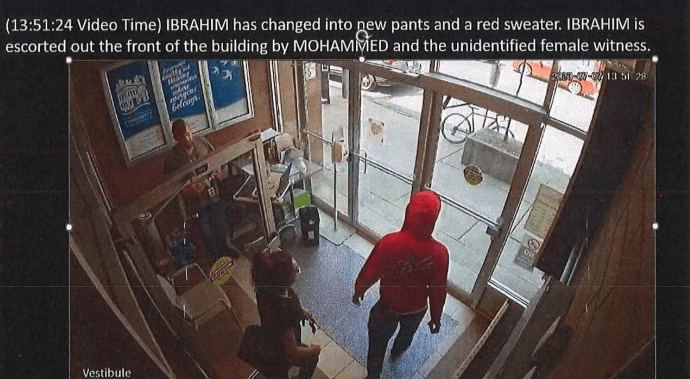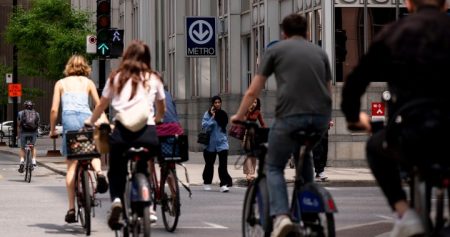Paragraph 1: The Tragic Incident and Initial Charges
In the summer of 2023, a tragic incident unfolded near a supervised consumption site in Toronto’s Leslieville neighborhood. Karolina Huebner-Makurat, an innocent bystander, lost her life after being struck by a stray bullet during an altercation between two alleged drug dealers. The proximity of the shooting to the South Riverdale Health Centre, which housed the supervised consumption site, intensified public scrutiny of the facility. In the wake of the shooting, a city-wide manhunt ensued to apprehend those responsible. Weeks later, 23-year-old Khalila Mohammed, an employee of the supervised consumption site, was arrested and charged with attempting to obstruct justice and being an accessory after the fact to the shooting. These charges stemmed from her alleged involvement in aiding one of the accused individuals immediately following the incident.
Paragraph 2: A Romantic Relationship Emerges
The investigation revealed a surprising development: a romantic relationship between Mohammed and Ahmed Mustafa Ibrahim, one of the individuals charged in connection with the shooting. Ibrahim faced charges of manslaughter and robbery. The relationship, according to the agreed statement of facts, began almost immediately after the shooting. This connection between a worker at the supervised consumption site and a suspect added a complex layer to the already tragic narrative. The emergence of this relationship became a pivotal point in the investigation, shifting the focus to Mohammed’s actions after the shooting.
Paragraph 3: Aiding and Abetting a Suspect
The agreed statement of facts detailed Mohammed’s direct assistance to Ibrahim on the day of the shooting. After Ibrahim was injured during the incident and treated by a nurse at the supervised injection site, Mohammed took him inside the facility, helped him change clothes, and facilitated his escape from the area by ordering an Uber. These actions, taken while a police investigation was already underway, formed the basis of the accessory after the fact charge. As the manhunt intensified and police released images and videos of the suspects, Mohammed’s communication with Ibrahim became increasingly crucial evidence.
Paragraph 4: Digital Communication and Evasion Tactics
Text message exchanges between Mohammed and Ibrahim, recovered by law enforcement, painted a vivid picture of their evolving relationship and attempts to evade capture. Described as "prolific texters," their messages revealed Mohammed’s advice to Ibrahim to "stay away for a while" and "lay low" as police closed in. They discussed the quality of the released images, and Mohammed’s urging for Ibrahim to leave the city became more insistent. These digital communications provided compelling evidence of Mohammed’s active role in assisting Ibrahim’s attempts to avoid arrest.
Paragraph 5: Providing Shelter and Further Deception
Going beyond mere communication, Mohammed took concrete steps to shelter Ibrahim from authorities. She arranged for a short-term rental property in Pickering, an area where she reportedly lived, using the Airbnb platform. She cautioned Ibrahim against conducting web searches related to the shooting, offering to do so herself "just to be safe." The agreed statement of facts documented Mohammed’s rental of the Airbnb and confirmed that Ibrahim stayed there with her. This act of providing a hiding place solidified her involvement in obstructing justice. Despite her efforts to conceal Ibrahim’s whereabouts, law enforcement eventually apprehended Mohammed.
Paragraph 6: The Plea and Pending Sentencing
On Wednesday, Khalila Mohammed pleaded guilty to being an accessory after the fact to manslaughter. The three additional charges against her—accessory after the fact to robbery and two counts of attempting to obstruct justice—are expected to be withdrawn by the Crown. Her sentencing is scheduled for March 2025. The case underscores the tragic consequences of gun violence and the complex web of relationships and decisions that can unfold in its aftermath. The guilty plea brings a degree of closure to one aspect of the case, but the emotional scars of Karolina Huebner-Makurat’s death will undoubtedly endure for her loved ones and the community.










